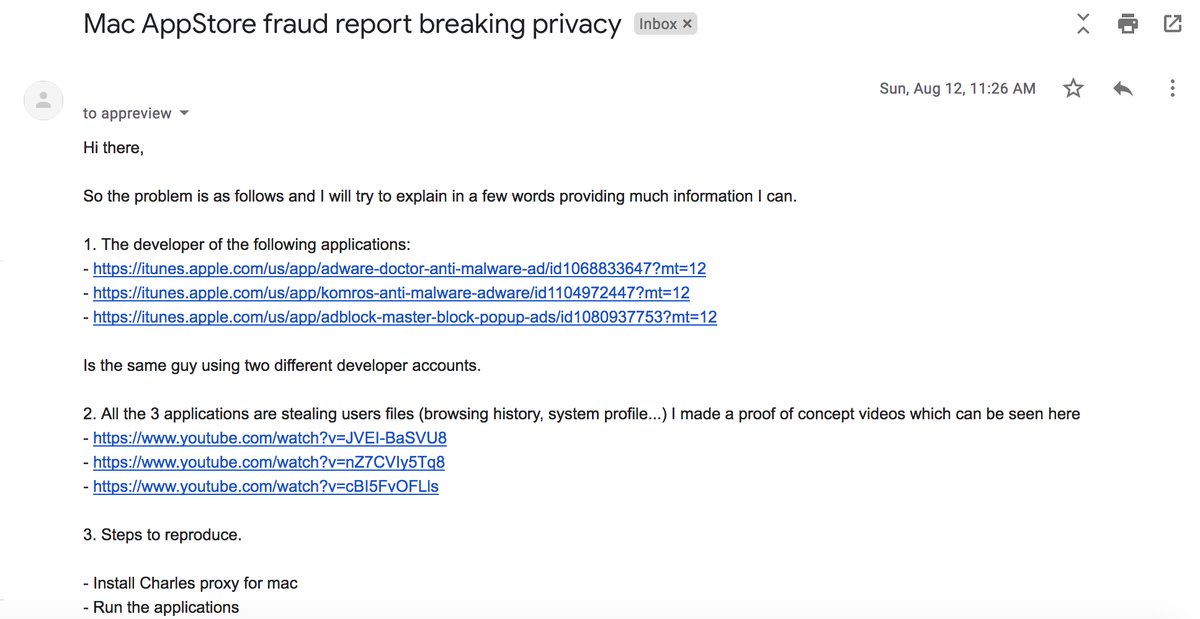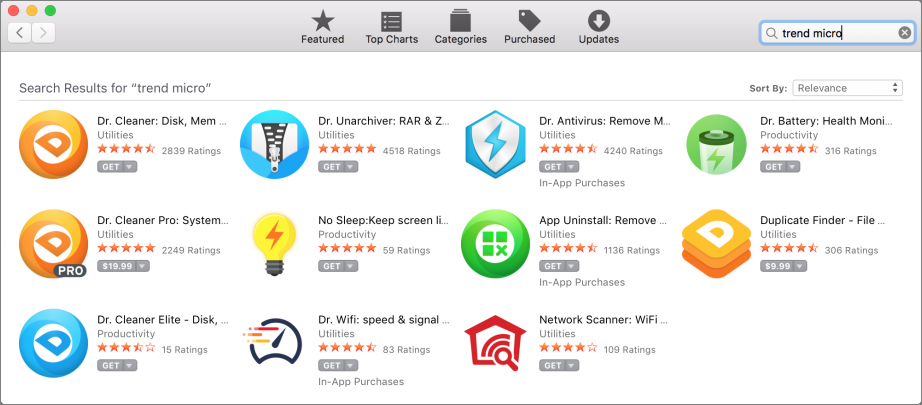

- #Trend micro dr.cleaner for mac app software
- #Trend micro dr.cleaner for mac app code
- #Trend micro dr.cleaner for mac app download
Last Friday, a few Mac security researchers independently published their findings regarding a number of Mac App Store apps that employ questionable tactics, violate Apple’s guidelines, and spy on victims’ computer activity.Ī Twitter user going by the name “Privacy 1st” ( recently found some suspicious behavior in a popular App Store app, called Adware Doctor (full App Store title: “ Adware Doctor:Anti Malware &Ad“) and began tweeting about it. So then, just how safe is the Mac App Store? And what should Mac users do? Multiple Independent Sources Find Privacy-Violating Apps Many apps have recently been caught doing unscrupulous things, circumventing protections supposedly provided by the App Store, and invading users’ privacy. Lo and behold, new information has come to light that calls into question the safety of the App Store platform.
#Trend micro dr.cleaner for mac app software
Together, Apple’s app review process and sandboxing theoretically make the App Store a more trustworthy software source than most.
#Trend micro dr.cleaner for mac app download
Security professionals often advise users that Apple’s Mac App Store is one of the safest places to download apps.Īfter all, Apple has a review process that’s supposed to help prevent potentially harmful apps from ever being published. Additionally, App Store apps are sandboxed, which is supposed to limit apps’ ability to engage in undesirable behavior. However, all app makers must form the habit of explicitly informing the user if they collect any data for any purposes.Recommended + Security & Privacy + Software & Apps How safe is the Mac App Store? Privacy-violating apps uncovered Trend Force notes that none of the data collected has been compromised at any point, so users of these products need not worry of a breach. We recommend users to delete any of the above mentioned apps from their Mac devices, and use other alternatives instead. The company is now in the process of reviewing and re-verifying its user disclosure, consent processes, and posted materials for all of its products, and in the meantime, all of the apps remain unlisted on the Mac App Store. This has been corrected." The company said that it has permanently dumped all legacy logs stored in AWS, and has removed the browser collection features across its consumer products. We have learned that browser collection functionality was designed in common across a few of our applications and then deployed the same way for both security-oriented as well as the non-security oriented apps such as the ones in discussion.
#Trend micro dr.cleaner for mac app code
However, later, Trend Micro issued an apology stating, "We believe we identified a core issue which is humbly the result of the use of common code libraries. It initially claimed that it never stole any user data without consent, and that this one-time data collection was mentioned in the disclosure, and is accepted by the user. This was done for security purposes to ascertain whether the device had any adware or threat installed, and was uploaded to a US-based server hosted by Amazon Web Services (AWS) managed and controlled by Trend Micro. Trend Micro earlier said that its apps collected and uploaded a small snapshot of the browser history on a one-time basis, covering the 24 hours prior to installation. In any case, Apple no longer lists any of the above apps on the Mac App Store. Later, it issued an apology stating that an issue regarding a common code in browser collection functionality has been found and rectified, and all data logs have been permanently dumped.

Battery, and Duplicate Finder - collect data only once, and this is purely done for security purposes.

Initially, the firm stated that all of these allegations were false, and later apologised for the whole matter at hand. Apple has removed cyber-security firm Trend Micro's apps from the Mac App Store after reports of it 'stealing user data' and sending it to unidentified servers came to light.


 0 kommentar(er)
0 kommentar(er)
